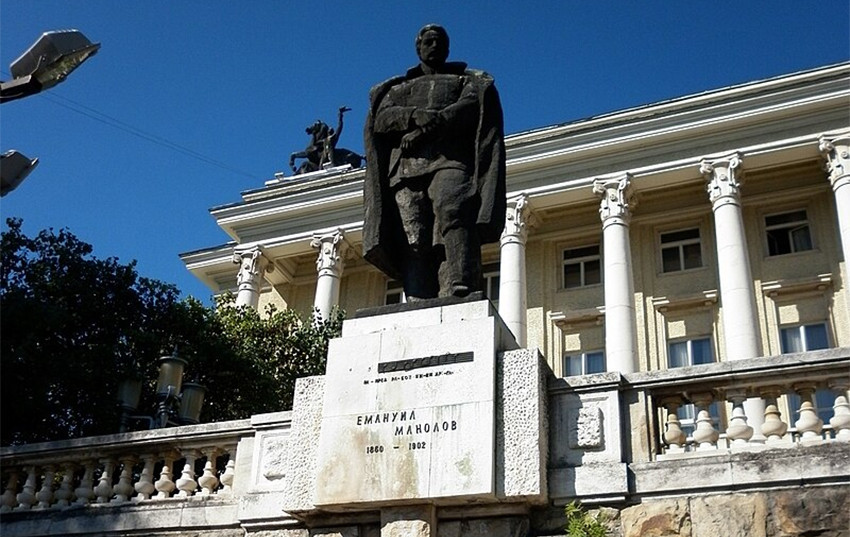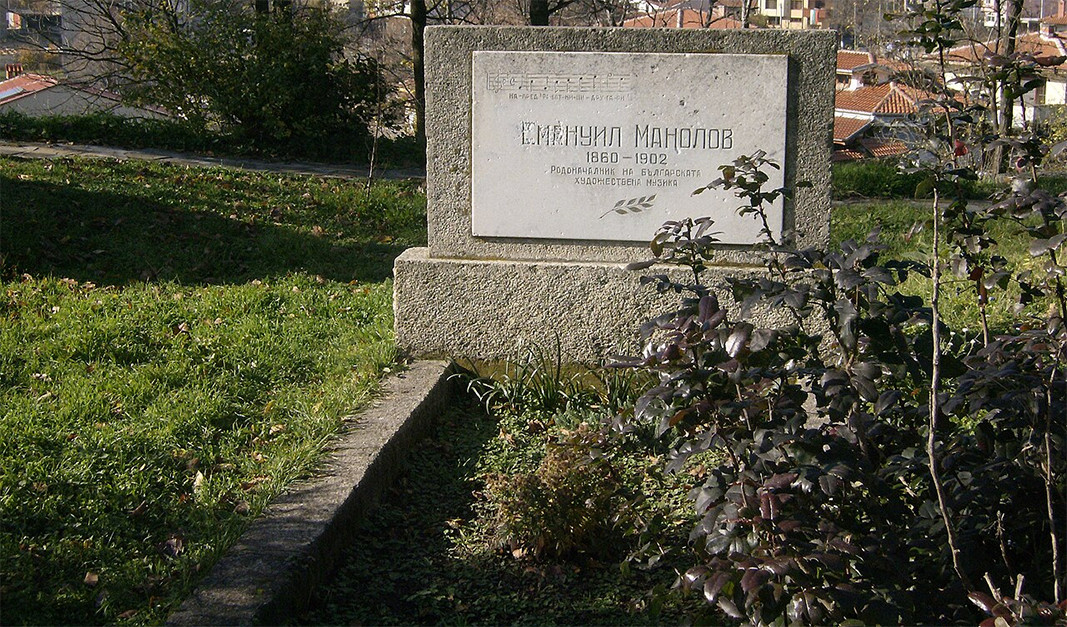For decades, a misguided notion has persisted in the histories of Bulgarian classical music – that the country still had catching up to do with Europe and the wider world. Such a view is not only misleading, but it does a grave disservice to our own composers – among them Emanuil Manolov, the first professionally trained Bulgarian composer, hailed as the very “founding father” of our national music.
Like his fellow pioneers, Manolov possessed both remarkable talent and a refined musical education. Like many of his contemporaries and successors who studied abroad, he chose to return home, determined to contribute his knowledge and skills to shaping Bulgaria’s musical identity.
Sources differ on whether he was born in 1858 or 1860, but his birthplace is beyond dispute: Gabrovo – a town of industrious and ambitious spirits, renowned for enterprise, learning and national awakening, and home to the country’s first secular school.
Little is known about Manolov’s early life, except that it was marked by hardship and poverty. Some twenty-five years ago, a striking episode came to light when the acclaimed Bulgarian director Georgi Dyulgerov set out to make a series of films about pioneering composers. While digging through the archives, he uncovered the first Bulgarian opera, "The Poor Woman" (Siromahkinya), written by Manolov, whose libretto was inspired by a true story.

The opera’s heroine, who was forced to beg for food to keep her children alive, was modelled on the composer’s own mother. Having been left destitute, she took the desperate gamble of travelling with her four sons to Kyiv, where she appealed to prominent Bulgarians for support with the children's education. Her pleas went unanswered. Desperate, she abandoned the boys altogether. They were eventually found by fellow Bulgarians and taken to the Bulgarian community council in Odessa, where their paths diverged – a tragic turn of events that speaks volumes about the origins of Bulgarian music.
Emanuil pursued formal musical training at the Moscow Conservatory, where he studied the flute and piano and took music theory lessons. He also began to compose music during this time. However, his studies were cut short by the outbreak of the Serbo-Bulgarian War, which prompted his return home to serve as a bandmaster on the front line.
From 1885 until the end of his life, he worked as a teacher and military musician in Plovdiv, Asenovgrad and Kazanlak. In Kazanlak — the so-called 'town of roses' — he served as bandmaster of the 23rd Shipka Regiment and directed the amateur choir and orchestra at the local Iskra community centre. It was there that he composed much of his music, including the first two acts of The Poor Woman (Siromahkinya), which premiered in 1900.

Although Emanuil Manolov is best known as the composer of the first Bulgarian opera, and also wrote chamber music and pieces for wind orchestra, his most important genre was choral music. His famous song “What a Maiden I Saw, Mother” (Kakva moma vidiah, mamo) remains beloved and frequently performed to this day.
He also composed numerous potpourris for mixed choirs, alongside liturgical chants, marches, and exquisite children’s and school songs. Among these, the classic “Fair Are You, My Homeland” (Hubava si, tatkovino), set to Petko Rachov Slaveykov’s magnificent poem, endures as a symbol of Bulgarian national pride.
Its composer, trained in Moscow, could undoubtedly have pursued a career abroad, as many of his contemporaries from the first generation of Bulgarian composers did. Yet these musicians devoted themselves to a mission: to open up Bulgarian society, still somewhat closed, to the European professional music scene. Understanding and assimilating new values was the path these professional musicians trod alongside their society – and they did so without ever attempting to “catch up” with anyone.
"'You are beautiful, my homeland'" – performance by the National Philharmonic Choir and the Sofia Philharmonic Orchestra
Editor: Elena Karkalanova
Posted in English by E. Radkova
Often described as “the Bulgarian Verdi” or “the Bulgarian Puccini,” composer Parashkev Hadjiev (1912–1992) has long been recognised as a central figure in Bulgaria’s operatic tradition. The country’s most prolific creator of musical-stage works, he left..
Admirers of schlager music and expressive stage presence are certainly looking forward to the pre-Christmas meeting with Veselin Marinov. It has already been a long-standing tradition for the singer to have a concert in the National..
Photos: ubc-bg.com, архив, Facebook/ Filmotechno podcast Discover more Bulgarian music in Radio Bulgaria's series "Highlights of Bulgarian musical culture": Highlights of Bulgarian musical culture: ''Barefoot times'' -..
Often described as “the Bulgarian Verdi” or “the Bulgarian Puccini,” composer Parashkev Hadjiev (1912–1992) has long been recognised as a central figure in..

+359 2 9336 661
